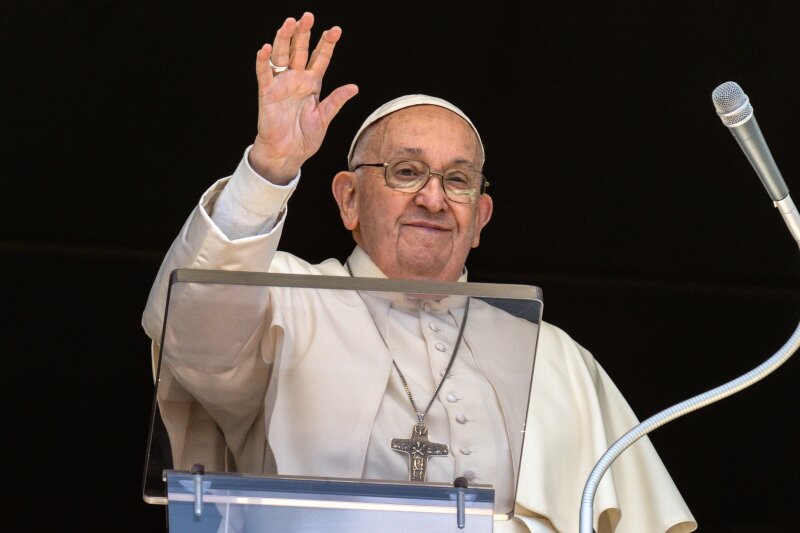
Historians' work should lead to dialogue, truth, pope says
By Catholic News Service
04/22/2024
VATICAN CITY (CNS) — Historians serve the common good when they seek historical truth and not an ideological interpretation of events, Pope Francis said.
"The temptations of self-absorbed individualism and the ideological affirmation of one's own point of view fuel the incivility of confrontation" and must be combated with a commitment to scholarship, openness and dialogue, the pope said April 20 as he met members of the Pontifical Committee for Historical Sciences.

at the Vatican April 21, 2024, for his recitation of the
Regina Coeli prayer.
CNS photo/Vatican Media
The committee members — historians from different countries with expertise on different eras — "bear witness to being able to resist such temptations, living with passion, through study, the regenerative experience of service to unity, that composite and harmonious unity that the Holy Spirit shows us at Pentecost," the pope said.
Pope Pius XII established the committee in 1954 to promote historical research and emphasize the importance of preserving church archives and allowing scholars access to them. Members of the committee also carry out research requested by different offices of the Roman Curia.
While their subject matter is the past, historians' work also can and should pave the way for dialogue today, Pope Francis told them.
"It is good that you collaborate with others, expanding your scientific and human relations, and avoiding forms of mental and institutional isolation," the pope said. "I encourage you to maintain this enriching approach, based on constant and attentive listening, free from any ideology — ideologies kill — and respecting the truth."
The church and historians share a commitment to finding the truth, he said.
Bringing together people with different backgrounds and sensitivities promotes "what I would call 'cultural diplomacy,'" the pope said, and "it is very timely. Today, it is more necessary than ever in the context of the dangerous ongoing piecemeal global conflict, which we cannot watch passively."
Pope Francis asked the historians to continue to open up "horizons for dialogue, where you can bring the light of hope of the Gospel, that hope that does not disappoint."
-
